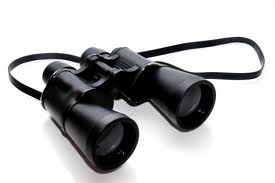Welcome to the Hunt
 Ideas are arguably the most valuable asset in the information
economy. Paul
Romer, the famed Stanford economist, proves that ideas are the heart of human
progress. But how do you find the best ideas–ideas that can boost careers, change
organizations, discover new marketing approaches, create new processes, or ramp up the value
of projects? Why do some people seem to come up with ideas that make things happen and other
people seem to be stuck in a rut doing and saying the same thing over and over?
Ideas are arguably the most valuable asset in the information
economy. Paul
Romer, the famed Stanford economist, proves that ideas are the heart of human
progress. But how do you find the best ideas–ideas that can boost careers, change
organizations, discover new marketing approaches, create new processes, or ramp up the value
of projects? Why do some people seem to come up with ideas that make things happen and other
people seem to be stuck in a rut doing and saying the same thing over and over?
We try to answer these questions in our myth-busting book that challenges many assumptions about how great ideas are discovered, and who discovers them. In this blog, we hope to continue with our research and share and shape our (and your) understanding of how to discover ideas that lead to innovations that matter.
Drawing on extensive research and experience, we show that outstanding business ideas do not spring from innate creativity, high IQ or necessarily from the minds of brilliant people. Rather, breakaway ideas come to those who are in the habit of looking for such ideas—all around them, all the time. In short, idea hunting behavior trumps raw brainpower. Idea hunters do not buy into the starry-eyed notion that the only great idea is a pristinely original one. They know better. They understand that game-changing ideas are “already out there, waiting to be spotted and then shaped into an innovation”.
We’ve studied these idea professionals—their stories, secrets and habits, in our latest book The Idea Hunter: How to Find the Best Ideas and Make Them Happen (Jossey-Bass; hardcover; April 2011), written by myself and Bill Fischer, and with William Bole. The book portrays a diverse band of Idea Hunters, ranging from Thomas Edison, Mary Kay Ash, and Walt Disney, to Warren Buffett, his sidekick Charlie Munger, and Apple’s Phil Schiller, as well as companies such as Twitter, Pixar Animation Studios, and the Boston Beer Company. This blog hopes to find more success stories and hear yours so idea hunting can be mastered by all of us.
In addition to these rich personal accounts and portraits, we propose a method that anyone can customize for cultivating the habits of The Hunt. The method involves finding time every day for:
- learning (“Sell the Best Hour of the Day to Yourself” is the title of one section)
- creating great conversations
- bridging gaps between yourself and people in other “distant” specialties and occupations
- nurturing the skills of direct observation
- recording your thoughts and impressions
- understanding the power of routine prototyping
- and many other habits
In our search to help managers move ideas (vs. hoard knowledge), we helped developed the renowned managerial DeepDive™ process–a method of idea-storming and solution-shaping that is used by corporate teams worldwide (and now trademarked by Deloitte Consulting). Based in part on their experiences with DeepDive™ sessions, we have identified four bedrock principles for use by individual managers and other professionals: the I-D-E-A principles (Interested, Diverse, Exercised, and Agile), each of which connects managers with crucial attitudes, habits, skills, and strategies.
We point to other key characteristics of Idea Hunters and want to explore those characteristics with you on this blog:
- They know their gig. They understand their mission—what they’re all about as professionals, and where they see themselves a few years down the road—and why it matters.
- They don’t let the organization, job, industry or profession define their Idea Hunt. They cast their net widely, drawing ideas from an eclectic mix of sources that often go untapped by others in their specialties.
- They recognize how the world around them connects with their plans and projects. Idea Hunters put themselves in places (“ideas spaces”) where they are most likely to be hit with high-value ideas.
The Idea Hunter unveils a strategy for unearthing new ideas in whatever industry or organization you operate. That strategy is essentially The Hunt—“a search for ideas that’s open-ended, ongoing, and always personal—dialed into who you are, what projects you’re pursuing, and where you’re going in your career,” the authors write. “What’s needed is a fresh batch of skills that professionals can use every day.”
This blog will offer insights into idea hunting, tips from managers, and share tips from readers. Idea hunting is a learnable skill. Let’s join the hunt together.


